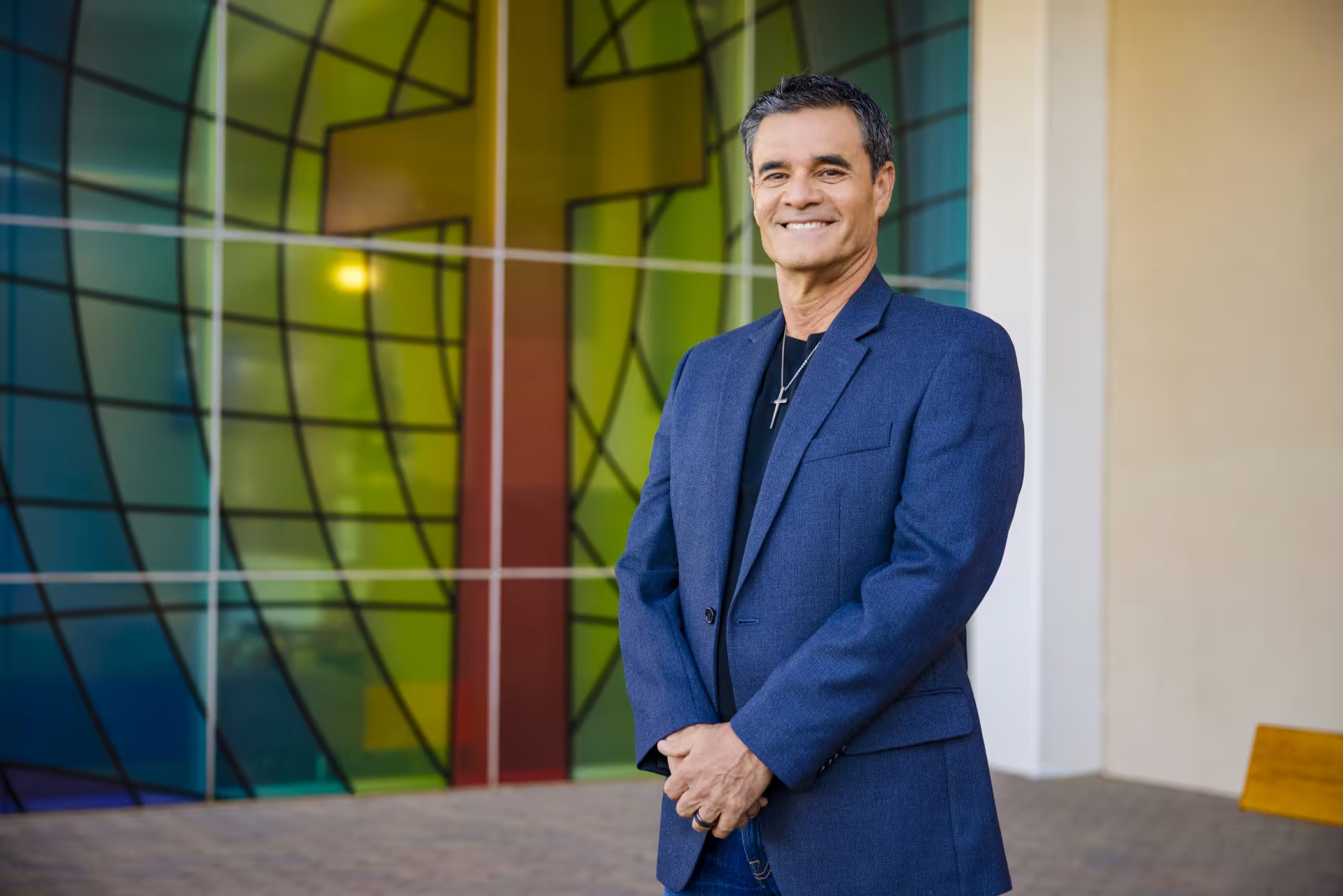
Christian Counseling Certificate Online Program
Help Others Approach Mental Health With a Christ-Centered Focus
The online Graduate Certificate in Christian Counseling program at Grand Canyon University offers an introduction to counseling theory within a Christian worldview. You will examine personal spiritual formation and character development, and you will be guided to apply biblical principles to counseling topics, such as forgiveness, self-assessment and reconciliation with God.
This certificate in Christian counseling online is designed to teach you counseling theories from a Christian perspective, which can help you decide if you wish to pursue a master’s degree in counseling and, afterward, state licensure. Alternatively, this Christian counseling certificate may enable you to pursue non-licensure positions, where you can work to create meaningful change for others.

Online: $600 per credit [More Info]
The University will accept one course of the total certificate requirements in transfer.
Credits: Fill out the Lopes Eval to find out what will transfer
Admission Requirements (Master's)
- Undergraduate Degree*
- 2.8+ GPA
OR 2.5+ Unweighted GPA and
- GMAT: 500
- GRE: 300 combined**
Admission requirements may differ based on degree level, program and modality, or transfer status. Some programs of study may require a higher GPA and/or other qualifying criteria for admission. Please review full admission and program requirements in the University Policy Handbook.
* Degree must be from an accredited college or program that has been approved by GCU.
** Combined verbal/quantitative, after August 2011 (1,000 combined verbal and quantitative, prior to August 2011).
Earn a Certificate in Christian Counseling Online From GCU
The Christian counseling certificate program at GCU could be a great path if you want to help others and, potentially, move forward to earn a master’s in counseling. This online certificate program integrates the Christian worldview and the Bible into counseling field concepts. It teaches the boundaries and limitations for counselors, counseling theories, and the relationship between biblical concepts and healthy relationships.
This program is offered fully online so you can build your knowledge in Christian counseling skills on a more flexible schedule. Take courses through an interactive learning platform and have access to your instructors and peers throughout the program.
Certificate in Christian Counseling Course Topics
The Christian counseling certificate online consists of four courses that address the integration of counseling theory, Christian worldview, the study of spiritual formation and more.
These courses cover topics such as:
A Narrative Approach to Theology
Look at applications of biblical principles to the life and practice of Christian counselors
Spiritual Formation and Stages of Growth
Includes personal faith development and character development for counselors
Safe Practice Implementation
Implement practices personally and professionally as they pertain to relational health
Christian Worldview Integration
Incorporate Christian worldview into counseling theory and practice, with an emphasis on the nature and purpose of human beings from a biblical perspective and ethical issues pertinent to the Christian counselor

Skills Taught in This Certificate Program
You will take courses that integrate a Christ-centered approach to overcoming emotional and behavioral health difficulties.
During these courses, you will be taught to:

Careers Paths For Christian Counseling Certificate Holders
This Christian counseling certificate online is designed for students who want to help people but are unsure whether they want to earn their master’s degree and pursue licensure as a counselor. No program of study can guarantee any particular career outcome, and the requirements to become a counselor can vary from state to state. However, after graduating with your certificate in Christian counseling, you may choose to pursue the following types of work:
GCU Proudly Offers Institutionally Accredited Certificate Programs
Before making an enrollment decision, it’s important to check whether the school you’re considering is institutionally accredited. GCU is an institutionally accredited university that emphasizes quality of instruction.
Certificate in Christian Counseling Online Program FAQs
The decision to further your education is not an insignificant one. Take the time to research your intended career path before making an enrollment decision regarding a Christian counseling certificate program. The following frequently asked questions and answers can help you get started.
Is biblical counseling the same as Christian counseling?
How do you become a certified Christian counselor?
Can you be a Christian counselor without a license?
Program Curriculum
Core Courses

Prepare to pursue work that helps others and glorifies God with a certificate in Christian counseling. Apply today for enrollment in GCU’s online program.
- U.S. Bureau of Labor Statistics. (2022, Oct. 24). How to Become a Substance Abuse, Behavioral Disorder, or Mental Health Counselor. Occupational Outlook Handbook. Retrieved Sept. 1, 2023.
- Grey, S. (2023, May 31). How to Become a Christian Counselor: Skills and Requirements. Forbes. Retrieved Sept. 1, 2023.



